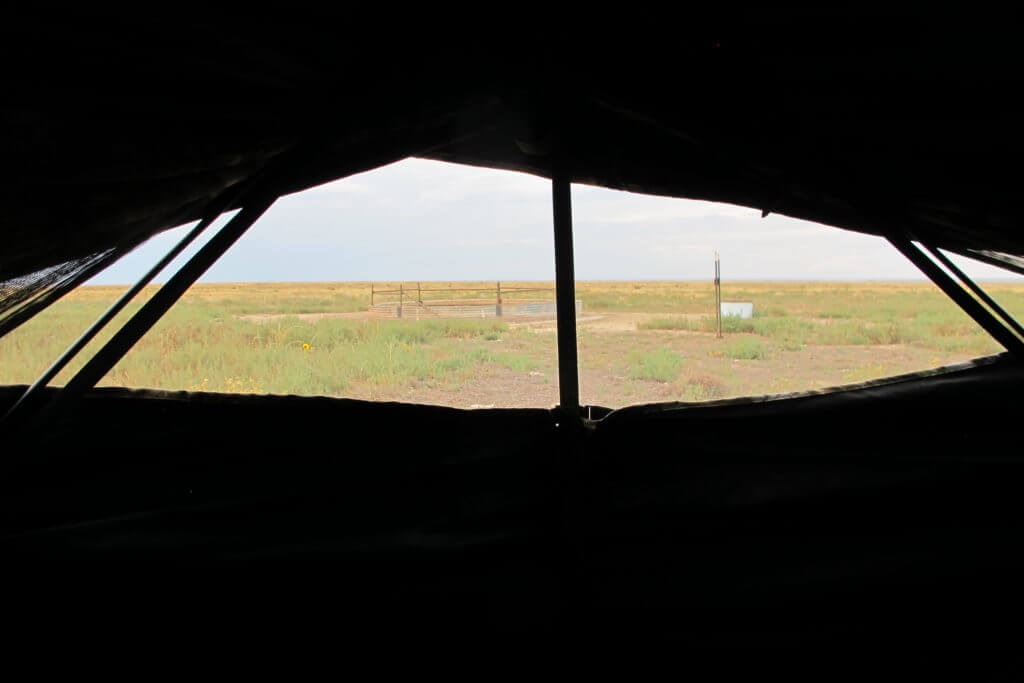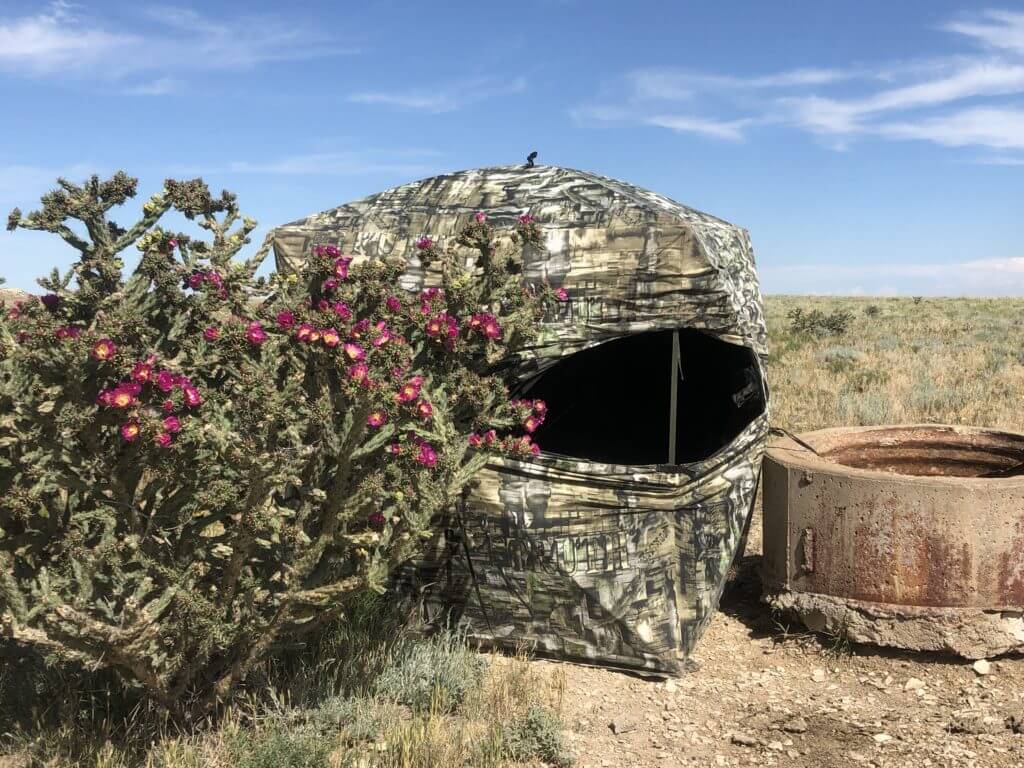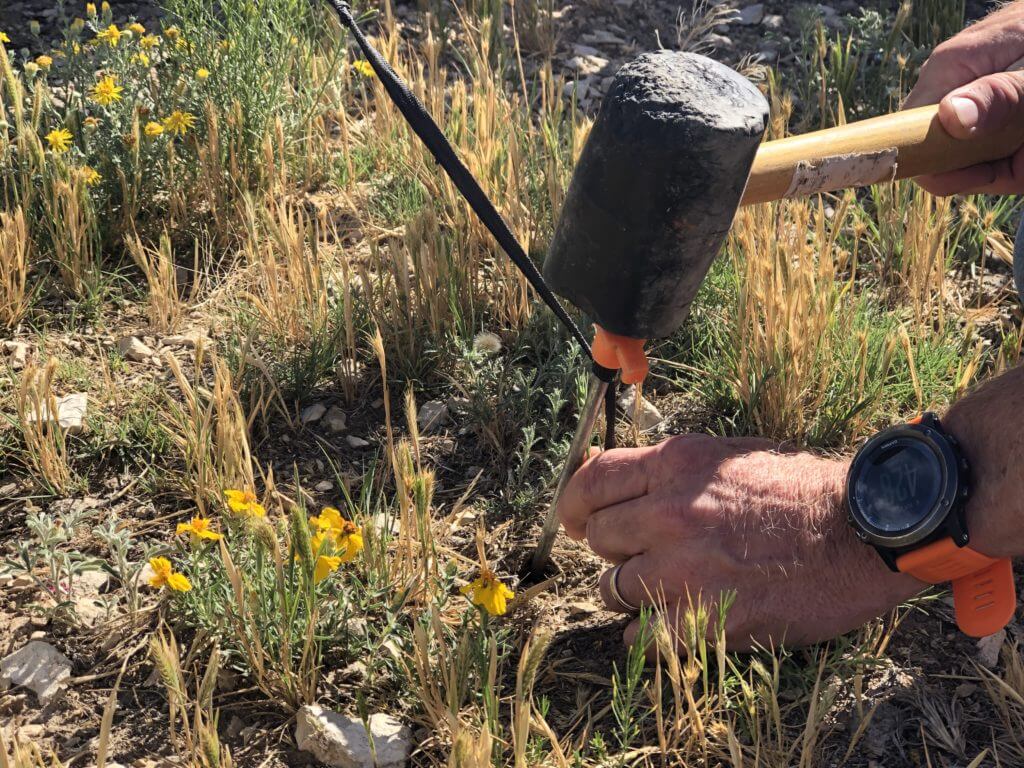
Read Part I – HERE
Read Part II – HERE
You’ve found the right water source. Good. Now it’s time to get down to business, set the blind and get to hunting.
Set It Right…
When it comes to setting your ground blind, there’s a lot to consider, and I see lots of ground-blind goers foil their waterhole plans with poor placement. I know it’s not always possible but if you can, get your blind out several days before you plan to sit it. Even getting it out the afternoon before your first hunt will help. If you are able to get the blind out a week ahead of time, you can place it between 20 and 25 yards from the water source in the wide open. If an early deployment isn’t possible, keep these tips in mind.
- Don’t crowd the water source. We’ve already noted that pronghorn can be skittish over water and a newly popped-up cube will spike their anxiety if that cube is 15 to 20 yards away from where they like to drink. You’ve been practicing shooting all summer, right? Back that blind off to 35 or 40 yards.

- Lots of tanks and ponds have old ranch equipment (posts, feed bunks, pipes, tires, windmill blades and the like) around them. A tall cactus or sagebrush may be found as well. If your water source has any of the above, use it to your advantage. Set your blind in the middle of a junk pile, behind a feed bunk or to the side of a sage bush. This makes a massive difference. Most of the time, pronghorn, even if the blind is set only hours before, will pay a sparsely blended-in blind any notice. It doesn’t take much. If you find a situation like this, don’t be afraid to set that blind at 20 to 25 yards.

- Your ground blind will come with stakes, but they aren’t enough. Go to your local sporting goods store and invest in some heavy tent stakes. The western winds are fierce and will rip a ground blind that hasn’t been properly anchored out of the ground and send it tumbling.

When it comes to wind, regardless if I set my blind the week before or the same day, I play the predominate wind for the area and don’t fret about it. Yes, speed goats can smell, but they aren’t nearly as olfactory-wary as deer and elk. Typically, even if cattle have been out of an area for a grip of time, the heavy smell of ammonia remains. Not to mention the fact that the rancher typically drains his bladder each time he stops to check the tank. A good ground blind will help contain your scent, and I recommend going the extra mile and investing in an Ozonics unit. The combination of a good ground blind that offers solid scent containment in conjunction with an Ozonics unit will beat the nose of a speed goat most every time. In fact, the last three pronghorn I’ve killed from a ground blind has been with the wind blowing right at the water source.
Get a nice, roomy blind that has easy-to-manipulate windows. You’re going to be spending long, hot hours in your ground fortress and you don’t want to feel cramped. Chances are you’ll be toting a small cooler and other gear, and you want to have plenty of room. Plus, a sizeable blind allows you to hide toward the back, which boosts concealment. A comfortable chair is also paramount. I also recommend cutting an old piece of carpet and bringing it along. I hate dust getting all over my gear, and if you don’t put down some type of flooring, your bow, pack, optics and the like will be covered in it.